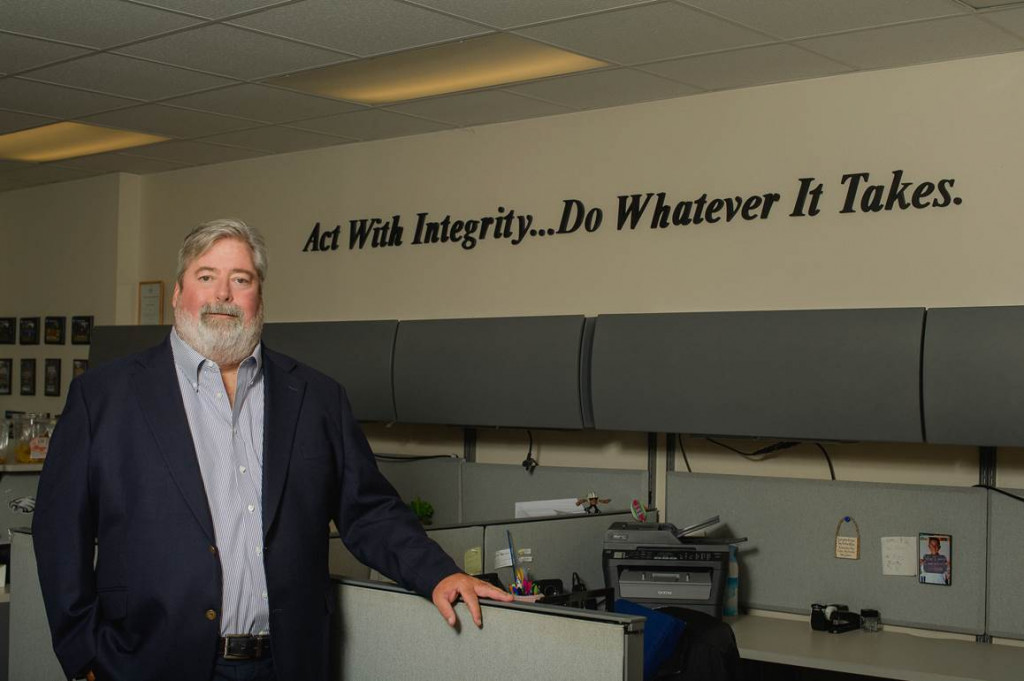Lawyers Weigh in on Federal Decision That CFPB is Unconstitutional
June 22, 2018In light of a federal court ruling yesterday that the structure of the Consumer Financial Protection Bureau (CFPB) is unconstitutional, deBanked spoke with some lawyers to get their perspective on what this decision could mean.

Alan Kaplinsky, Partner, Ballard Spahr
“I think it will sow more confusion related to the CFPB. I think it’s important to note that this opinion – while it is precedent that could be cited in other cases…it’s not binding on any other court anywhere in the country, including in the Southern District of New York. That being said, I anticipate that the CFPB will appeal [the decision] if for no other reason than because they have other cases. Ultimately, I would anticipate that the case will end up in the U.S. Supreme Court.”

Lucy Morris, Partner, Hudson Cook (previously a Deputy Enforcement Director at the CFPB)
“The bottom line is that it creates yet more uncertainty for the bureau, for industry and for consumers. Is this bureau legitimate or not? And if not, what does that mean for all of the many decisions and actions taken by the former [CFPB] director Cordray and the current acting director, Mulvaney.
Maybe this can add to a momentum to create a bipartisan commission to finally resolve this, and to give everyone a commission that…avoids the wide pendulum swings that have been happening. This requires a legislative fix, which is challenging of course.”

Lawrence Kaplan, Of Counsel, Paul Hastings
“Typically, in a case like this, you would have a circuit split, where now you have one circuit saying yes and one circuit saying no. And ultimately that would go up to the supreme court. But you could have the administration saying ‘We’re not going to defend this.’ [Given the administration’s unfavorable attitude toward the CFPB], it’s likely that you’re not going to see anyone vigorously defend the agency.
As for alternative lenders, [these] are state issues. And as a result, [lenders] are not off the hook…At the end of the day, everyone will still have to comply with a patchwork of state laws. You’re really taking away the federal hammer. So, [certain cases] may no longer be a federal case. Now, in some ways, be careful what you wish for, because now you have to face 50 executioners [because] a lot of the states would defer to and join with the feds.”
Gusto Enables Employees to Choose Their Own Payday
June 21, 2018 Gusto announced today the launch of Flexible Pay, a new feature that allows employees to choose their own pay schedule. Employees will no longer have to adjust their finances around employers’ typical twice monthly payments.
Gusto announced today the launch of Flexible Pay, a new feature that allows employees to choose their own pay schedule. Employees will no longer have to adjust their finances around employers’ typical twice monthly payments.
“My kids have a better payroll system than I do,” said Josh Reeves, CEO of Gusto, in reference to kids who babysit or mow lawns and get paid immediately after the job is done.
With Flexible Pay, employees can get paid weekly or for work they did the previous day. Gusto gives an advance to the employer to pay the employee. Since this service is brand new, Gusto will be making these loans and keeping them on their own balance sheet. But Gusto spokesperson Rick Chen told deBanked that they are currently in talks with banks.
“Employees are essentially giving loans to their employers,” Chen said regarding the current system.
While Gusto is a payroll company, it is trying to disrupt the payday lending industry and other online lenders that focus on short-term lending. So far, this service is free. Gusto charges neither the employer nor the employee. The only catch is that the employer has to use Gusto’s payroll system in order to get this perk for its employees. The hope is that this program will incentivize employees to ask their employers for this perk and Gusto will gain new clients, according to Chen.
Founded in 2011, Gusto has over 60,000 payroll customers nationwide and offices in San Francisco and Denver.
LendUp Adds Top Capital One Veterans to Its Board
June 21, 2018
LendUp announced today that Capital One co-founder Nigel Morris joined as board chair, and Frank Rotman, an early Capital One employee and its longtime Chief Credit Officer, joined as board member.
LendUp Co-founder and CEO Sasha Orloff is delighted about this, but not surprised.
“Our mission is to help people have a path to better financial health, which involves helping people improve their credit score and learn better financial behavior,” Orloff said.
He acknowledged that, unlike most banks, Capital One has focused on expanding credit to those with lower credit scores, which is exactly what LendUp focuses on. Orloff told deBanked that half of all Americans have a credit score of 680 or below, yet most banks and fintechs look to serve the top half. LendUp serves the bottom half.
“So it’s no surprise that our board now has Nigel Morris from Capital One and includes Blake Buyers from Google Ventures,” Orloff said. “It’s like an incredible dream to be able to have the best in technology analytics and the best in building financial services, together.”
LendUp provides an alternative to payday lending by offering unsecured loans between $100 and $1,000. LendUp launched a credit card last year that has been so popular, the company was unable to issue more cards and now has a waiting list of 250,000 people, Orloff said.
Prior to establishing LendUp in 2011, Orloff worked on the credit risk team at Citigroup and said one thing that really stood out for him was a study Citigroup helped conduct that revealed that the average person with a subprime credit score will pay $250,000 to credit card companies throughout their life. He wanted to change this. He also mentioned that one’s credit score is based primarily on two factors: on-time repayment and access to credit that you don’t use.
“So we design our loans and our card products to help people make sure they’re paying on time and make sure that they’re only using the credit that they need.”
Orloff said that LendUp places an emphasis on financial education. LendUp actually offers customers more money at lower rates if they take the company’s education courses.
LendUp also offers helpful perks like allowing the borrower to pick the day they want to repay, which Orloff said is a first. And unlike other credit card companies that usually offer either one or zero payment reminder alerts, LendUp sends three reminder alerts which they have found to be very helpful for their customers.
For busy people with children and often more than one job, Orloff said, “the first alert is a reminder, the second is like ‘oh, ok I’ll get to this,’ and the third is ‘ok, I’ve got to pay this now.’”
Based is San Francisco, LendUp employs 250 people.
Lendio Giving Program Funded $70,000 in Microloans Through Kiva
June 20, 2018 Lendio announced today that Lendio Gives, its employee contribution and employer matching program, has provided more than $70,000 in microloans to 2,800 underserved entrepreneurs in 78 countries through Kiva. Kiva is a nonprofit with a crowdfunding model that connects lenders to low-income entrepreneur borrowers. These microloans can be for as little as $25.
Lendio announced today that Lendio Gives, its employee contribution and employer matching program, has provided more than $70,000 in microloans to 2,800 underserved entrepreneurs in 78 countries through Kiva. Kiva is a nonprofit with a crowdfunding model that connects lenders to low-income entrepreneur borrowers. These microloans can be for as little as $25.
“At Lendio, we talk about ‘fueling the American Dream,’” Lendio CEO Brock Blake told deBanked. “That’s what we’re passionate about and what we’re driving. At Kiva, their mission is helping entrepreneurs throughout the world. So it was a natural extension to choose Kiva.”
According to Kiva’s website, Kiva emphasizes character over credit, and uses social underwriting to assess the creditworthiness of its borrowers. To date, Kiva has provided $1.2 billion in loans in 85 countries for everything from water and sanitation needs to working capital for small markets, restaurants and artisans.
The Lendio Gives program with Kiva started in 2016 and, according to a company statement, for every loan facilitated on the company’s marketplace platform, a percentage of the fee is donated to Kiva.
Back in April, Lendio announced that its Turndown program has facilitated nearly $60 million in loans in less than a year since it launched last summer. The Turndown program allows participating lenders to refer declined borrowers to the Lendio marketplace where borrowers can get funding elsewhere.
“The Turndown program is going extremely well,” Blake said. “It’s really helped us grow.”
Blake said that Lendio will be releasing numbers on the Turndown program within the next month or so.
Based in Salt Lake City, UT, Lendio was founded in 2011 and also has an office in New York. Of about 150 employees, 100 work at the headquarters in Salt Lake City and 50 work in New York.
When to Hire a Collection Company
June 19, 2018
There is no rule telling a funding company at what point it should seek the help of a collection company when a client defaults on an agreement. That’s entirely up to the funding company. Some have in-house collection teams while others don’t and some go slower to approach a collection agency than others.
At 6th Avenue Capital, CEO Christine Chang said that they generally don’t use collection agencies.
“When we started 6th Avenue Capital, we had a much heavier hand,” she said. Initially, they hired an in-house collections attorney, but found that it wasn’t a very collaborative approach.
“If the first call you get is from a lawyer, you’re not going to call them back,” Chang said.
Instead, they hired an in-house Head of Collections and Chang said that has proven to be more effective.
“Now, it’s more like a call from Amanda who says ‘Mr. Smith, I see you missed a payment or two….tell us your situation and how can we help,” Chang said.
The company will occasionally hire a third party for collections, but after they have exhausted all efforts internally.

But collection agencies in the industry say that they work with some of the biggest funding companies, and at all stages of the process.
Mark LeFevre, CEO of collections firm Kearns, Brinen and Monaghan (KBM), said that his clients are not only among the top players but he also works with ISOs who have just started funding companies.
“The ones that recognize the problem early, have a better return,” he said. “The ones that kick the can down the road get a lesser return on the dollar.”

As for when LeFevre’s clients send their defaulted merchants to KBM, it varies, he said. He has one client that will send him accounts after 15 days while others will wait 90 to 120 days. He generally won’t take on defaulted accounts after 120 days, or at least will sit down with clients like these to discuss strategy.
Anh Regent, CEO of the MCA collection company, AMA Recovery Group, spoke about the value of having a merchant hear from a third party.
“There’s only so much you can do in house,” Regent said. “You need another voice. [And] when you send it to collections, the price of poker has just gone up,” meaning that the merchant feels a lot more pressure to pay.
Like KBM, Regent said that his MCA clients vary in size, from companies financing $500,000 a month to those financing $25 million a month.
Collector Says “No” to Debt Settlement Companies That Want His Data
June 19, 2018
Debt settlement companies often find their leads by scouring through UCC filings, or publicly available forms that a creditor files to give notice that it may have rights to the property of a debtor. In the case of a small business, perhaps the refrigerators in a restaurant.
“[Looking through UCC filings] is a way of getting access to businesses that obviously owe somebody some money for their business,” said Shawn Smith, founder and CEO of Dedicated Commercial Recovery, a commercial collections company in Roseville, Minnesota.
But Smith told deBanked about another approach that debt settlement companies have taken to obtain leads of struggling businesses. He said they come to him.
“Who has a ton of accounts of struggling business owners?” Smith said. “Debt collection agencies that are working on behalf of funding sources. So [we] have like a list of all lists.”
Smith said that he gets approached by debt settlement companies looking for the contact information of struggling companies.
He always says “no.”
“They’re coming to me and saying ‘Hey, you know, for any merchant you send us that’s struggling, if we start working with them to help settle their debts, we will give you a large portion of the fee we make on settling that debt,’” Smith said. “And we of course would never do that.”
Dedicated works in two areas of collections: merchant cash advance and equipment leasing. In both cases, its goal is to recoup money for its clients, either merchant cash advance companies or equipment leasing companies.
Unlike this arrangement, a debt settlement company is not hired by a funding company. Instead, according to Smith, the debt settlement company searches for a struggling company, instructs the merchant to stop paying the funder and then approaches the funder with a settlement deal for often a fraction of what the funder is entitled to under the agreed upon deal. Smith said that settlement companies almost always propose to the funder: 20 percent of the value of the deal over five years.
Smith said he does work with debt settlement companies if they approach him representing a small business that can’t pay its bills, as long as what’s offered is within the range of what the funding company client would accept. Otherwise it’s a no-go. While Smith doesn’t share the names of struggling small businesses in exchange for kickbacks in the event of repayment, he’s convinced that this happens as he continues to be approached.
Founded by Smith in 2015, Dedicated has a staff of 18.
Agency Finds Some SBA Loan Lenders in Violation of Regulation
June 18, 2018
The Small Business Administration (SBA) has a regulation for SBA loan lenders, called the “Credit Not Available Elsewhere” requirement, that requires lenders to ensure that their borrower clients are unable to obtain reasonable credit elsewhere.
According to a report published this month by the Government Accountability Office (GAO), over 40 percent of the SBA loan lender reviews in 2016 showed noncompliance with this requirement.
“SBA provides business loan assistance only to applicants for whom the desired credit is not otherwise available on reasonable terms from non-Federal sources,” the regulation reads.
According to a blog post published last year by Janet M. Dery, a partner at Starfield & Smith who specializes in commercial lending, the SBA’s credit elsewhere test is a very significant part of the SBA 7(a) loan program.
“Failure to comply with the SBA’s credit elsewhere requirements may subject a lender to a denial of the SBA guaranty as well as a possible enforcement action by the Office of Credit Risk Management,” Dery wrote.
Furthermore, she writes that in order to comply with the SBA’s credit elsewhere requirements, which appear on pages 83-84 of SOP 50 10 5(I), “[t]he lender must determine that: (a) The Small Business Applicant is unable to obtain the loan on reasonable terms without a Federal government guaranty, and (b) Some or the entire loan is not available from any of the following sources: i. Non-Federal sources; or ii. The resources of the applicant business.”
Lawyers in LendingClub Class Action Case Defend Fee That ‘Shocked’ a Judge
June 14, 2018 Lawyers from Robbins Geller Rudman & Dowd represented clients in a class action suit against LendingClub and reached a settlement with the company for $125 million. The law firm, which was working on contingency, requested a 13.1 percent cut of the winnings, or $16 million, which a California Federal judge said “shocked” him.
Lawyers from Robbins Geller Rudman & Dowd represented clients in a class action suit against LendingClub and reached a settlement with the company for $125 million. The law firm, which was working on contingency, requested a 13.1 percent cut of the winnings, or $16 million, which a California Federal judge said “shocked” him.
Earlier in the week, Robbins Geller filed a 30-page motion in defense of its fee. Among the law firm’s arguments are that they carried a significant financial burden with this as a contingency case and that the firm succeeded in reaching an uncommonly high settlement. “A settlement that Wall Street analysts have described as ‘far exceed[ing] our expectations’ and ‘coming in at the high end of the historical range of settlements,’” the motion read.
Robbins Geller also compared its success to the results (or lack thereof) of government agencies, like the SEC and the DOJ, which have presumably tried to represent the investor clients against LendingClub and have failed.
“The DOJ lawyers do not even have to deal with counsel for witnesses whom they question before a grand jury, nor do they have to ask for documents – they can seize them through search warrants….Yet, despite all these advantages, the government has not brought a single civil or criminal charge in connection with these same facts. Nor has the government recovered a single penny for investors. Relative to the government’s results, a $125 million recovery is astounding.”
The motion also acknowledged that they were up against a defendant whose resources were far greater than theirs. And it further asserts that the firm’s effective research and skill ought to be rewarded – for obtaining the right documents and being prepared to depose the right witnesses that adequately scared LendingClub into paying a very generous settlement.
There will be a court hearing to address Robbins Geller’s motion on July 19 in the Northern District of California.






























